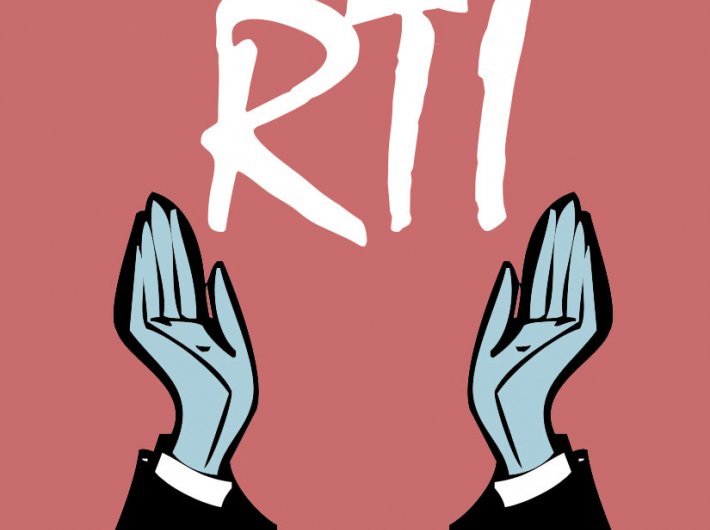Ever since the Reserve Bank of India-appointed P J Nayak Committee submitted a report blaming RTI as one of the constraints on the governance of public sector banks (PS Banks) in May 2014, Commonwealth Human Rights Initiative (CHRI) has been analysing the RTI performance of 24 PSU Banks.
RTI Performance of 24 PSU Banks: Here are main findings
- The 24 PS Banks dealt with a total of 82,102 RTI applications during the year 2015-16 (including the backlog from 2014-15). This amounts to about 7% of the 11.65 lakh RTI applications (includes the backlog from 2014-15) reported by the 1,903 public authorities registered with the CIC. The 24 PS Banks accounted for almost 40% of the 2.06 lakh RTI applications dealt with by the Ministry of Finance (including the backlog from 2014-15). If the backlog from 2014-15 is deducted, the RTI applications received by the PS Banks constitute almost 48% of the 1.55 lakh RTI applications received by the ministry of finance in 2015-16.
- The Reserve Bank of India (RBI) dealt with 16.6% more RTI applications (50,448) in 2015-16 as compared to the previous year. However, its backlog from 2014-15 (38,884 RTI applications) was more than three times the number of RTI applications received in 2015-16. Among the 24 PS Banks, Bank of India (BoI) had the highest backlog of 6,653 RTI applications from 2014-15. Surely, all these RTI applications may not have been submitted in the last month of the reporting year (i.e., March, 2015). It may be noted that this backlog is from the pre-demonetisation period. So their preoccupation with pulling out 86% of the total currency that was in circulation in the country and the subsequent remonetisation efforts, post-November, 2016 cannot be a valid explanation for the backlog that existed in April, 2015. In its Annual Report, the CIC does not record any comment on this trend of piling up of RTI applications by RBI and BoI.
- As has been the trend in previous years, with 25,345 RTI applications the State Bank of India (SBI) received the largest number of information requests in 2015-16. This amounts to more than a third (34.12%) of the RTI applications received by all 24 PSU Banks put together. With 8,181 RTI applications Punjab National Bank (PNB) received the 2nd highest number of information requests in 2015-16 and the Bank of Baroda occupies third place with 5,073 RTI applications received during this period.
- Among the 24 PS Banks, at 40.15%, IDBI Bank Ltd. logged the biggest increase in the proportion of RTI applications dealt with in 2015-16 as compared to the previous year. Bank of Maharashtra clocked an increase of 37.33% followed by Indian Bank with a 12.58% increase reported during the same period, taking 2nd and 3rd places, respectively.
- The number of RTI applications has shown a continuous declining trend with regard to the Central Bank of India and the United Bank of India since 2013-14. United Bank of India reported the least number of RTI applications received- 135, in 2015-16. This is a drop of 79% from the total number of information requests received in 2014-15.
- United Bank of India also rejected nearly 2 of every 3 information requests (65.2%). The proportion of rejection has increased ten-fold in 2015-16 whereas this Bank had reported the lowest proportion of rejection consecutively for two years since 2013- less than 6.5% per year. Whether these figures are correct or if there is any error in reporting to the CIC is difficult to gauge solely on the basis of the Annual Report.
- As compared to 2014-15, rejection rates have gone up in 50% of the 24 PS Banks, namely, Allahabad Bank, Andhra Bank, Central Bank of India, Corporation Bank, IDBI Bank Ltd. Indian Overseas Bank, Punjab National Bank (PNB), State Bank of Bikaner and Jaipur (SBBJ), State Bank of Hyderabad, State Bank of Mysore, Syndicate Bank and UCO Bank. Andhra Bank (56%) and State Bank of Hyderabad (51.9%) rejected every second RTI application dealt with in 2015-16.
- As regards the RTI load on PS banks, Bank of India averaged at more than 2 RTI applications per office (up from 1.79 in 2014-15). PNB, SBBJ and SBI averaged more than 1 RTI application per office, while the remaining banks averaged less than 1 RTI application per office in 2015-16. So the RTI statistics submitted by the banks to the CIC do not prove the “constraint theory” regarding their governance which was looked upon approvingly by the P J Nayak Committee in 2014.
- No correlation – whether positive or negative is apparent between the volume of non-performing assets (NPAs) and the increase or decrease in the number of RTI applications received or rejected by the PSU Banks. 13 of the 24 PS Banks reported a rise of more than 90% in their net NPAs during 2015-16, the highest being 157.69% reported by Vijaya Bank. However, a mere examination of RTI statistics reported to the CIC will not reveal much about the connection between rising NPAs and the pattern of information requests received by the PS Banks. A content analysis of the RTI applications received and the manner of their disposal by these Banks will be necessary to establish any positive or negative correlation in this regard. Such a study is the urgent need of the hour.

